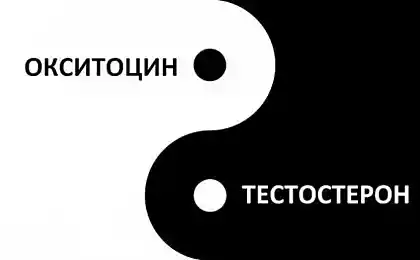526
Is there an ideal level of happiness
A recent study is disappointing: the constant pursuit of happiness makes You miserable.
"You can be happy today! Do not sit up your life, while Your friends and colleagues live. Be happy is simple: just take a few steps in the right direction," like that writes countless books on self-help and motivation. And most motivational coaches tell my clients like a mantra.
This thesis permeates the stories of life on the pages of magazines and Newspapers.
The last decade has been the Golden era of happiness study. Increasingly, scientists have wondered about the nature of this phenomenon and what makes a person happy. At the same time, the pursuit of happiness became a universal idea.

Happiness is a poison? After lengthy discussions, a small group of scientists from different countries were able to prove that the modern pursuit of happiness from hurting people. It turned out that happy is not the only time don't think they're gullible, less convincing, less careful and too careless. In addition, the "inspired" people lose the ability to engage in detailed analysis of what is happening and systematic thinking.
And the pursuit of happiness, according to scientists, it may backfire: the more You value happiness, the more miserable you feel. The team of psychologists at Yale University have shown that the more attention You give happiness, the more You expect the greater the disappointment. A simple example is date of birth: from childhood, we parents are told "the magic and uniqueness" of the day. But the older we get the less "magic" happens on this day. In addition, every year the holiday brings less emotion (compared to childhood), which gives rise to a gradual disappointment. Then there comes a time when people are not able to feel the festive mood: he knows that "brightness".
"We have put happiness under the "microscope" as we do with any other mental state, says Mr. Gruber, Professor of psychology at Yale University, the initiator of the study. We saw that this phenomenon has and the "dark" side".
Mr. Gruber and his colleagues are not saying that happiness is bad for you: "Happiness is a long list of benefits. Positive emotions encourage creative thinking, physical and mental health, say the scientists in their report. — At the same time, happiness is beneficial in some situations and a hindrance in others. It is good in moderation, but when it is in excess is poison".
The researchers believe that it is foolish to think of happiness as the complete good because it can be the cause of many failures.
Is there an ideal level of happiness? This is a philosophical question, find the answer to that is decided by scientists from the University of Virginia led by Shigehiro Miyabi. They studied the influence of the level of happiness of success in various fields of human activities. The highest, of course, predicted in a relationship. And so it happened: the lovers (they are also the happiest) tend to idealize their partners and be happy with what they got "perfect people". Therefore, they consider their relationship successful.
However, in two other areas — income and education – were all different. Happy people have less incentive to succeed. The results of the survey in several educational institutions and large companies were impressed with the happy do not strive for success. They are satisfied with low scores and a small salary. But those who considered themselves to be just satisfied (but not happy), had the balls higher and career growth they had faster.
That is why scientists came to the conclusion that the saturation of happiness is the cause of laziness.
If we are lucky, something to strive for next? This new interpretation presented to Mr. Gruber and his team in an article for the journal "Journal of Experimental Social Psychology". In this paper the authors explained that positive fantasies about future success actually increases the chances of failure. "Close your eyes and imagine a bright future. Part of You just doesn't want to work hard to achieve this result. Deep down You already firmly believe in what scenario the events will develop," the scientists write.
The danger of happiness You must know what price to pay for happiness. Psychologists have documented the variety of cognitive deficits, dangerous in some contexts, that come along with this feeling. In situations that require careful attention to new information, and happy people pass all pass. At the same time, if You are a little sad, the more ready for trouble, but also more sensitive to the signs that something goes awry.
"It is obvious that emotions shape our way of thinking, and this explains many of the mistakes that makes a happy mind," says Joe Forgas, Professor of psychology at the University of New South Wales in Sydney. The psychologist has devoted a significant part of their research documenting the power of negative thinking.
When Forgas compared the performance of happy people with those who considered themselves to one degree or another unhappy, he found that happy people are less reliable witnesses less able to recognize the lies, they are less convincing. Happy people are more likely to think in stereotypes, and this leads to frequent disappointments.
All of this suggests that too positive thinking that comes with happiness brings with it some "weakness": the lack of attention to detail, understatement of potential threats and problems.
Iris Mauss from the University of Denver conducted a study of the behavior of those who are looking for happiness. "Such people often start to ask yourself questions: "How happy I am? How to make yourself happier?" They spend more and more time alone, their social ties are weakened, they become lonely. This is a direct way to disaster" — says the psychologist.
How to stop looking for happiness? One of the most powerful ways to boost happiness, but to keep sane, acceptance. Instead of treating negative emotions as a "failure", you should learn to accept them as a natural part of a healthy lifestyle. Negative feelings often make us think, to make a new plan or to examine in more detail any issue.
Therefore, you should not chase happiness, it will come to You. After all, even Henry David Thoreau wrote: "Happiness is capricious and unpredictable, like a butterfly: when you're trying to catch it, it slips away from you, but is distracted and it itself will fall right into your hands." published
P. S. And remember, just changing your mind - together we change the world! © Join us at Facebook , Vkontakte, Odnoklassniki
Source: mif-facts.com.ua
"You can be happy today! Do not sit up your life, while Your friends and colleagues live. Be happy is simple: just take a few steps in the right direction," like that writes countless books on self-help and motivation. And most motivational coaches tell my clients like a mantra.
This thesis permeates the stories of life on the pages of magazines and Newspapers.
The last decade has been the Golden era of happiness study. Increasingly, scientists have wondered about the nature of this phenomenon and what makes a person happy. At the same time, the pursuit of happiness became a universal idea.

Happiness is a poison? After lengthy discussions, a small group of scientists from different countries were able to prove that the modern pursuit of happiness from hurting people. It turned out that happy is not the only time don't think they're gullible, less convincing, less careful and too careless. In addition, the "inspired" people lose the ability to engage in detailed analysis of what is happening and systematic thinking.
And the pursuit of happiness, according to scientists, it may backfire: the more You value happiness, the more miserable you feel. The team of psychologists at Yale University have shown that the more attention You give happiness, the more You expect the greater the disappointment. A simple example is date of birth: from childhood, we parents are told "the magic and uniqueness" of the day. But the older we get the less "magic" happens on this day. In addition, every year the holiday brings less emotion (compared to childhood), which gives rise to a gradual disappointment. Then there comes a time when people are not able to feel the festive mood: he knows that "brightness".
"We have put happiness under the "microscope" as we do with any other mental state, says Mr. Gruber, Professor of psychology at Yale University, the initiator of the study. We saw that this phenomenon has and the "dark" side".
Mr. Gruber and his colleagues are not saying that happiness is bad for you: "Happiness is a long list of benefits. Positive emotions encourage creative thinking, physical and mental health, say the scientists in their report. — At the same time, happiness is beneficial in some situations and a hindrance in others. It is good in moderation, but when it is in excess is poison".
The researchers believe that it is foolish to think of happiness as the complete good because it can be the cause of many failures.
Is there an ideal level of happiness? This is a philosophical question, find the answer to that is decided by scientists from the University of Virginia led by Shigehiro Miyabi. They studied the influence of the level of happiness of success in various fields of human activities. The highest, of course, predicted in a relationship. And so it happened: the lovers (they are also the happiest) tend to idealize their partners and be happy with what they got "perfect people". Therefore, they consider their relationship successful.
However, in two other areas — income and education – were all different. Happy people have less incentive to succeed. The results of the survey in several educational institutions and large companies were impressed with the happy do not strive for success. They are satisfied with low scores and a small salary. But those who considered themselves to be just satisfied (but not happy), had the balls higher and career growth they had faster.
That is why scientists came to the conclusion that the saturation of happiness is the cause of laziness.
If we are lucky, something to strive for next? This new interpretation presented to Mr. Gruber and his team in an article for the journal "Journal of Experimental Social Psychology". In this paper the authors explained that positive fantasies about future success actually increases the chances of failure. "Close your eyes and imagine a bright future. Part of You just doesn't want to work hard to achieve this result. Deep down You already firmly believe in what scenario the events will develop," the scientists write.
The danger of happiness You must know what price to pay for happiness. Psychologists have documented the variety of cognitive deficits, dangerous in some contexts, that come along with this feeling. In situations that require careful attention to new information, and happy people pass all pass. At the same time, if You are a little sad, the more ready for trouble, but also more sensitive to the signs that something goes awry.
"It is obvious that emotions shape our way of thinking, and this explains many of the mistakes that makes a happy mind," says Joe Forgas, Professor of psychology at the University of New South Wales in Sydney. The psychologist has devoted a significant part of their research documenting the power of negative thinking.
When Forgas compared the performance of happy people with those who considered themselves to one degree or another unhappy, he found that happy people are less reliable witnesses less able to recognize the lies, they are less convincing. Happy people are more likely to think in stereotypes, and this leads to frequent disappointments.
All of this suggests that too positive thinking that comes with happiness brings with it some "weakness": the lack of attention to detail, understatement of potential threats and problems.
Iris Mauss from the University of Denver conducted a study of the behavior of those who are looking for happiness. "Such people often start to ask yourself questions: "How happy I am? How to make yourself happier?" They spend more and more time alone, their social ties are weakened, they become lonely. This is a direct way to disaster" — says the psychologist.
How to stop looking for happiness? One of the most powerful ways to boost happiness, but to keep sane, acceptance. Instead of treating negative emotions as a "failure", you should learn to accept them as a natural part of a healthy lifestyle. Negative feelings often make us think, to make a new plan or to examine in more detail any issue.
Therefore, you should not chase happiness, it will come to You. After all, even Henry David Thoreau wrote: "Happiness is capricious and unpredictable, like a butterfly: when you're trying to catch it, it slips away from you, but is distracted and it itself will fall right into your hands." published
P. S. And remember, just changing your mind - together we change the world! © Join us at Facebook , Vkontakte, Odnoklassniki
Source: mif-facts.com.ua























